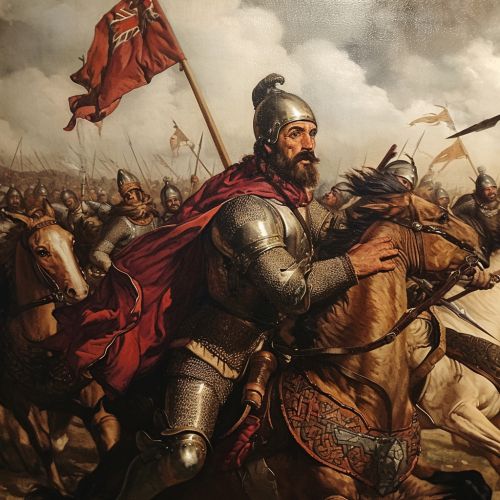Clovis I
Early Life
Clovis I was born around 466 AD, the son of Childeric, the Merovingian king of the Salian Franks, and his wife Basina. He succeeded his father in 481 as the king of the Salian Franks, a federation of Frankish tribes located in the region now known as Belgium.
Rise to Power
Clovis began his reign at a time when the Roman Empire was in decline and various Germanic tribes were on the rise. His first major victory came in 486, when he defeated the last Roman governor of Gaul, Syagrius, at the Battle of Soissons. This victory expanded his kingdom to include most of the region between the Somme and the Loire, and established him as a significant power in Western Europe.

Conversion to Christianity
Clovis is perhaps best known for his conversion to Christianity, which occurred around 496. According to the historian Gregory of Tours, Clovis converted after his wife, Clotilde, a Burgundian princess and a devout Christian, persuaded him to do so. His conversion marked a significant turning point in the history of Europe, as it led to the eventual Christianization of the Frankish kingdom and its expansion under the banner of Christianity.
Expansion of the Kingdom
After his conversion, Clovis embarked on a series of military campaigns to expand his kingdom. He defeated the Alemanni in 496 at the Battle of Tolbiac, and later the Visigoths in 507 at the Battle of Vouillé, effectively extending his kingdom to include most of Gaul and parts of modern-day Germany.
Legal Reforms
Clovis is also noted for his legal reforms, particularly the codification of Salic Law. The Salic Law, or Lex Salica, was a body of traditional law among the Salian Franks that dealt with a wide range of issues, from inheritance and property rights to criminal justice. The codification of this law under Clovis helped to establish a more uniform legal system across his kingdom.
Death and Legacy
Clovis died in 511 and was buried in the Abbey of Saint Genevieve in Paris. His kingdom was divided among his four sons, in accordance with Frankish custom. Despite the subsequent divisions, Clovis's dynasty, the Merovingians, would continue to rule the Frankish kingdom for another two centuries.
